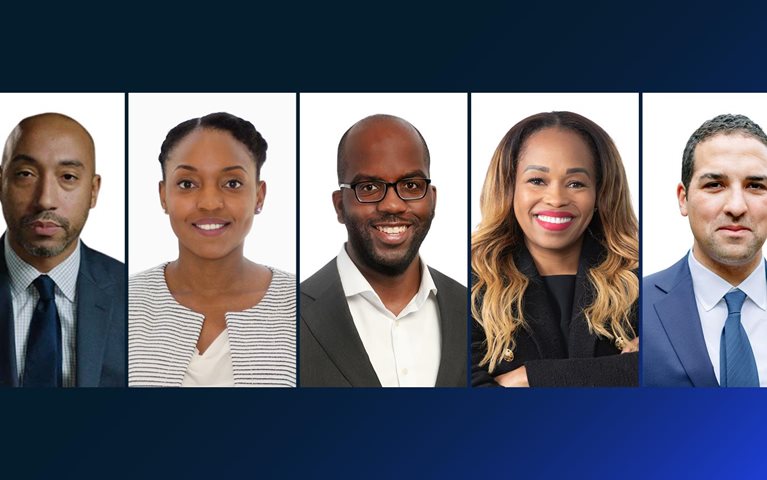“Economic empowerment for Black Americans is at the core of sustainable and inclusive growth,” says Shelley Stewart III. “If you can solve it for Black Americans, then you’ve got seeds of the solution for all Americans who are living close to the poverty line, because Black Americans are disproportionately the poorest from an income and wealth perspective, and they suffer from very limited economic mobility.”
A partner in our Marketing and Sales and Private Equity Practices who founded and directs the McKinsey Institute for Black Economic Mobility, Shelley has just been recognized for his work on this front. On February 21, Crain’s New York Business named him to the publication’s 2022 list of Notable Black Leaders. “I am honored to be recognized alongside so many accomplished professionals,” he says. “For nearly two decades, I’ve considered New York City my home, and I’m grateful to the social and professional excellence taking place in the city of dreams.”
Fighting for racial equity in the workplace is something of a family tradition for the Stewarts. Shelley’s grandfather was a machinist and union official who championed equal rights in 1960s corporate America and fought for the desegregation of schools on Long Island. His mother Ann, who holds a BA in criminal justice and an MPA, had a successful career working for the State of Connecticut as a lead on the Alternative Dispute Resolution Program. And Shelley Stewart Jr. is an accomplished corporate executive and board member who served as E.I. du Pont Nemours and Company’s chief procurement officer from 2012 to 2016 and currently sits on the boards of Kontoor Brands and the Otis Worldwide Corporation. The Stewarts recently endowed the Stewart Professor of Criminal Justice and Community Policing at the University of New Haven, and in October 2021, Shelley Jr. was named one of America’s Most Influential Black Corporate Directors by Savoy.
[Note: In the short films here, Shelley and his father, Shelley Stewart Jr., talk about Black leadership in the workplace across two generations.]
These role models helped steer Shelley’s passion. “I absolutely saw this level of determination from both of my parents, who went to work every day and had to deal with all sorts of things that folks who are Black have to deal with,” says Shelley. “I was party to conversations at the dinner table about it. The spirit was never complaining. It was more about understanding the reality of the situation that we’re in and recognizing that as you progress you also have an obligation to bring more people through the door.”
Crain’s created the 2022 list to “identify talented and accomplished Black individuals” who “invigorate the New York business community every day.” Shelley has spent his career in the city. He worked on Wall Street in investment banking for J.P Morgan before leaving to co-found and lead portfolio management for Dreadnought Capital Management, a New York impact-investment firm that focused on providing debt capital to social-impact borrowers. In its first two years, the firm completed more than $300 million in impact-driven transactions, which included the support of affordable housing developments.
Shelley joined McKinsey in 2012, where he has realized an opportunity to utilize the firm’s platform and resources to continue his work on racial equity. Today, that includes authoring flagship McKinsey research, such as A $300 billion opportunity: Serving the emerging Black American consumer, that highlights the social and economic benefits to be unlocked through inclusive economic growth.
In a February article published in AdAge, Shelley summed up the thesis of that work: “There is an estimated $300 billion already in play today—$260 billion in reallocated spending and $40 billion in new consumption—from better serving Black consumers,” he wrote. “The latest research from the McKinsey Institute for Black Economic Mobility, which included a survey of almost 3,500 respondents, makes the case that serving Black consumers better would deliver both social and economic benefits—to the United States as a whole, and to individual companies.”
Insights like that, Shelley explains, can help leaders pursue the kinds of efforts that will meaningfully improve Black economic mobility. “I’m optimistic,” he says. “It’s just about looking at the numbers and saying, ‘We live in a country where the ethos is all about having the opportunity to rise economically. But the fact of the matter is that has not been the reality for tens of millions of Black Americans.’ And we can call it woke, or just call it facts, but we need to begin to talk about it and actually make those opportunities a reality for everyone. That is how we will change things.”

